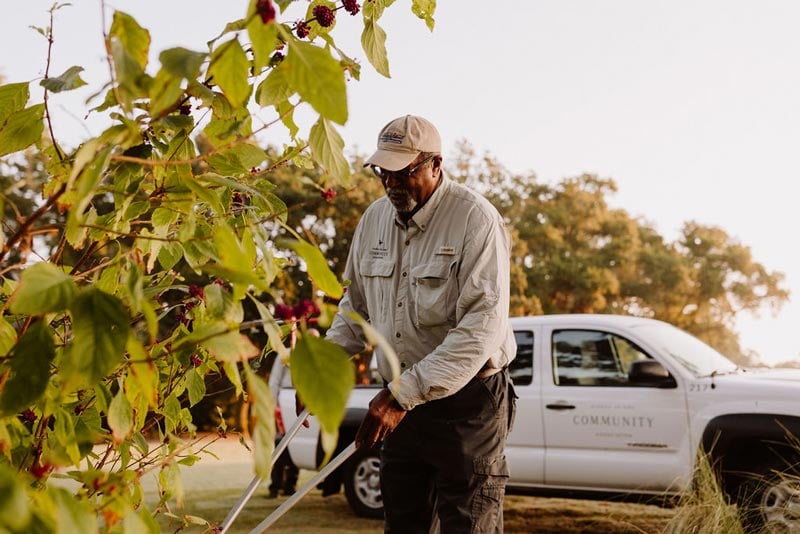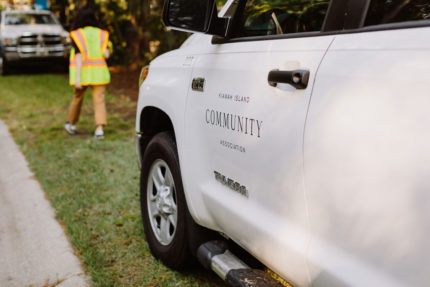Feb
06
2009
From The Blog
Meet Your Mayor: A Dialog With Bill Wert
William G. Wert is serving an unprecedented fourth term—on the heels of an also unprecedented third term— as mayor of Kiawah. After he won a hotly contested second term, the last two mayoral elections have been uncontested. He jokes about the concept of term limits: “Only people who are trying to get elected want term limits. The people who have been elected just want to stay there.”
An active, sociable and compassionate man who describes himself as “conservative and extremely patriotic,” but also a centrist socially and politically, Mayor Wert was elected by voters who consider Kiawah their primary residence, but he believes that his job is to serve all property owners. “I represent everyone, including the unrepresented,” he says. “You can’t split the island population and say we only represent this part and not that part. The town has responsibility for the overall health and safety of all the inhabitants. We can’t ignore an unsafe condition because it’s at a place not used by full-timers. We’re also responsible for zoning and land use, which affects everyone, and for the beach, which is for all residents.”
Mayor Wert came to Kiawah to retire, but his retirement was exceedingly short lived, as he has been the mayor almost as long as he has lived here full-time, and he served on the KICA board, including a year as president, before becoming mayor. “I often say to myself, gee, I thought I retired,” he laughs. He considers his work for the town a way of giving back. He worked for General Electric for 33 years before retiring, moving every two or three years, and he was never able to be involved in community activities.
For the mayor and his wife Patricia, Kiawah was a matter of love at first sight. The love affair began about 10 years before he moved here. “I’ve always been a planner and a thinker. It goes with my engineering background,” he explains. “I was living in D.C., recently re-married 17 years after my divorce from my first wife, and I knew that I’d be retiring in about 10 years, at age 60. Pat and I began looking at places to retire, visiting different places for long weekends. She loved the ocean and I liked golf. We wanted to stay on the east coast to be near our families. In 1989 we came to Kiawah on a Friday morning, and by the end of that weekend, we were committed. We had looked at condos, townhouses and single family homes, then we found a lot and made an offer. It was accepted before we left on Sunday.”
The speed with which he and Pat decided on Kiawah was not the first tumult of their young marriage. They were engaged when Pat learned that she needed surgery for a fibroid tumor. They married on a Saturday and moved into a new townhouse on Monday along with Pat’s parents, because her surgery was Tuesday. “So I spent my honeymoon with my in-laws in a house that had no furniture,” he recalls wryly.
The Werts’ next little whirlwind was the construction of their Kiawah house. They had bought their lot with the intention of building on it just before his retirement 10 years hence. Then they learned that the Ryder cup was coming in 1991. “We decided to build right away so we would have a place to stay. Our house was built in seven months—we offered our builder a bonus to have it done for the Ryder Cup. He started in January and finished two weeks before the tournament.”
With respect to the natural environment, living on Kiawah is a return to Mayor Wert’s youth. He grew up in Peekskill, NY, “close to the dirt,” he says. “My father was very frugal. We built our own house, even collecting the stone for the walls. I didn’t know I was poor until I went to school and realized that other kids had more.” He “skated through high school,” more interested in sports and the band than in academics. He attended a maritime college outside New York City because, “We could afford it. It was part of the state system and I didn’t have to pay anything. Also, it was an engineering school, affiliated with the military, and it wasn’t coed. My father was convinced that if I went to a coed school, I wouldn’t graduate. He was probably right.” He did manage to maintain his band and sports hobbies in college, playing the trumpet in his own band, earning All-American honors in soccer (“My college didn’t have football.”), and indulging his love of skiing.
He followed college with a stint in the Merchant Marines and then the Navy, marrying and having the first two of his three children. In 1968, he began working for GE, a year later earning his master’s degree in mechanical engineering. He divorced after several years, but shared custody of the children. He managed to enjoy several hobbies, including working part-time as a ski instructor, skiing competitively, playing semi-pro softball and acting in children’s theater. His work required world-wide travel, and by the time he retired, he had visited 56 countries in 37 years with the Navy and GE.
Displaying the compassionate side of his nature, the mayor also “adopted” another daughter. “A young man at GE told me that his wife’s father had abandoned her family in her childhood, and she really needed a father, as well as a grandfather for their future children. I became the wife’s father figure, mentor, consultant and everything a dad should be. They live in Singapore with one daughter who considers me her grandfather in every sense.”
Today the mayor finds the time and energy for a full slate of pursuits, including activities with Pat, time with his grandchildren, golf both here and overseas, travel, working for local charities and rooting for the New York Giants. He is especially proud of his 50 years as a die-hard Giants fan. He is also a living testament to medical progress, which has inspired his service to one of the charities, his board membership on the Storm Eye Institute, the vision center at the Medical University of South Carolina (MUSC).
When he was in the Navy, he became legally blind in one eye after an injury. He consulted doctors “all over the world,” and all assured him that the damage was irreparable. “Then a few years ago I met a doctor at Storm Eye at MUSC who said he had developed a procedure that might fix it,” he relates. “He was going to rebuild the inside of my eye. The surgery was experimental, so first we needed FDA approval. The procedure took about three hours. I came out, they took the patch off, and I could see my wife with my right eye for the first time.
It was truly a miracle. So I decided to get involved with the institute.” Despite his many interests, most of the mayor’s energy is focused on Kiawah. The list of his accomplishments and ongoing projects is long and comprehensive: the new main gate, the 2005 development agreement with KDP, the roundabout at Freshfields, the 2006 beach restoration project, efforts to improve Johns Island roads, improvements to the Code Red system for emergencies, the proposed bike path from the main gate to Freshfields, property tax reform, and cooperative efforts with Seabrook and Johns Islands.
He is particularly pleased with several other accomplishments. First, the town now subsidizes all weekly curb side solid waste pickup, charging a fee only for Saturday and back door service. “The County won’t provide it to a gated community, even though we pay taxes. It will cost about a million dollars next year. But I think it’s a service the town should provide.” The mayor cites the Arts Council, started in his first term, as a program with implications beyond its face value of providing offerings such as chamber music, small performing arts groups, and the symphony to property owners. It has become an outreach initiative. “The Charleston Symphony Gospel Choir had a great turnout from local people who wouldn’t normally hear them, as did the Charleston symphony brass performance. Folks on Johns Island don’t attend downtown arts performances, and they have tended to see us as those rich folks who live on Kiawah. We are expanding the Kiawah community and building goodwill by reaching out to Seabrook and Johns Island residents.”
Another of his favorite initiatives has had a downside. “I headed some coalitions of mayors to get property taxes reduced. Funding for schools that had come from property taxes is now coming from sales tax. Unfortunately, sales are down, so sales tax income is lower. And that hurts the schools.”
Asked to speculate on what the economic meltdown might mean for Kiawah in the next few years, Mayor Wert was pessimistic. “Property values here exploded after the Ryder Cup, and we have had appreciation of 10-15% a year. Now, for the first time ever, we may see some decrease in prices. Even during the dotcom setback, from 2000-2002, we only saw some leveling. Inventories of available properties were still relatively small. Now the number of properties for sale is over 500, more than double what it has been in the last few years, and some people are dropping their asking prices considerably.”
He thinks that town income will fall as a result. “All of the town’s income is from business licenses or accommodations taxes, and we are forecasting a big fall-off in those. We get a percentage of a builder’s gross income, and building has almost ground to a halt. In the 1990’s and 2002-2004, we would have upwards of 100 houses under construction. But builders have no backups after their present contracts expire, 6-12 months from now. I always called Kiawah inflation- and recession-proof, but I don’t think that is true any more. Many homes are owned by people in the financial arena, and they are suffering. Many retirees are still okay, but who knows what will happen to retirement incomes and health care benefits? There is a definitive feeling of unease which we never had before.” Because builders pay license fees to the town after a house is built, and because Charleston County remits accommodations tax revenues about three to six months after they receive the income, Mayor Wert does not expect a problem immediately. “We need a town budget that fits the income we’ll have later in the year. We are very fortunate in that we have extremely good, diverse investment policies and are flush right now with our rainy day fund.”
Once the economy turns around again, the mayor expects more controlled growth than in recent years. “You won’t see the wild spending of the ‘90’s when people contracted for huge expensive
homes and wrote a check. I can see building at the rate of 50 homes a year rather than 100. We have a developer who wants to live in harmony with nature. The community has a basic plan that has worked very well for growth and for the environment. Our core values will remain the same; nature and the beach will stay intact. There will be more dwellings, but the overall impression of Kiawah won’t change. That is my hope.”

